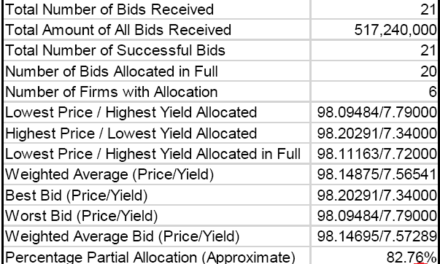
A single currency SADC needs a new manager
The curtain raiser for the all-important Heads of State summit that starts in Victoria Falls in Zimbabwe on Sunday, is a series of technical and ministerial meeting which started last Friday. The programme that lays the groundwork for the main summit, is expansive, to say the least.
Looking from afar, it appears the wheels for the entire week-long meetings are turning smoothly. Reports are released on a daily basis and the general impression is one of delegates, fortunately talking more sense than rubbish. Being fundamentally skeptical about this type of glamorous quasi-political get-together, I was pleasantly surprised by the quality of the content originating from the technical meetings. I have no idea who foots the bill for this week’s extravagance, but at least I am able to say that many good insights and intentions crossed my desk.
Intention, is here the operative word. One particular report that covered the proceedings of the Finance Committee, and one of its technical sub-committees, lists a number of achievements on the financial stage that affects all Southern African Development Community members. But this particular report is equally critical of those intentions, stated several years ago, not reached. I suspect, some of these core issues have actually dropped off the radar until it was discovered, they are circumscribed by treaty and somebody has to say something meaningful about them before the main summit.
Arguably the two most important intentions which failed to be realised is the single customs union and the single currency. In my opinion it is less difficult to establish a single customs union since the lion’s share of external trade exits the region. Since excise is usually mostly collected on goods entering a customs jurisdiction, establishing a unified customs union, collecting the duties, and then distributing same according to an agreed formula, should, on paper at least, not pose the biggest challenge in the world. The Southern African Customs Union can serve as blueprint and be expanded across all the borders to include those members that are comfortable to join. Everything is already in place, it is merely a matter of rolling out the same systems and procedures, convincing the Angolans not to ask for a bribe before they ask you for your passport, and teaching the Zimbabweans, the customs union revenue belongs to the customs union and not to Mugabe.
But on the second issue, a single currency, the lines are not so clear, and I believe the playing field not so level. If we were to introduce one currency for eight, nine, ten, even fourteen SADC members, we shall first have to demonstrate above any doubt that whatever currency we have in mind, fulfill all the usual requirements of an international measure of value.
Now, typically when one ventures into a discussion of a single currency, the South African Rand jumps to mind. But I am no longer convinced all the member states still see this as an obvious outcome. Forgetting for the moment that the Zimbabwean government knows zilch about currency management, let us assume, a majority of members would vote for the Rand for only two reasons – it is such a behemoth measured against any other local currency, and it already trades on the major international forex markets. Getting a currency listed on the Chicago Board of Trade, for instance, is a protracted and expensive process. Maintaining said currency on the same board, is a complicated and even more expensive process. And ensuring that there is always sufficient liquidity to enable smooth trading for importers and exporters, takes a little bit more than what the Kwanza or Kwatsha can muster.
My overarching problem, and I suspect of many of the political leaders, is that I [we] have zero or very little trust in the ability of the Rand’s manager, the South African government through the South African Reserve Bank, to manage this currency to the equal benefit of all participating members. The SA government has consistently undermined the Rand’s external value to the detriment of all other members who must also trade in it. The SA government has consistently failed to ensure that the Rand, as a store of value, retains its attractiveness for foreign investors. And grossly neglecting the fundamentals of their own economy and the intricacies of the capital market in Johannesburg, they have also turned it into a pariah currency. Finding that elusive SADC currency that will do for trade what it is supposed to do, and dispel the underlying fears of all other members, is far more difficult than drawing up a paper treaty and forgetting about it until the next summit.













































